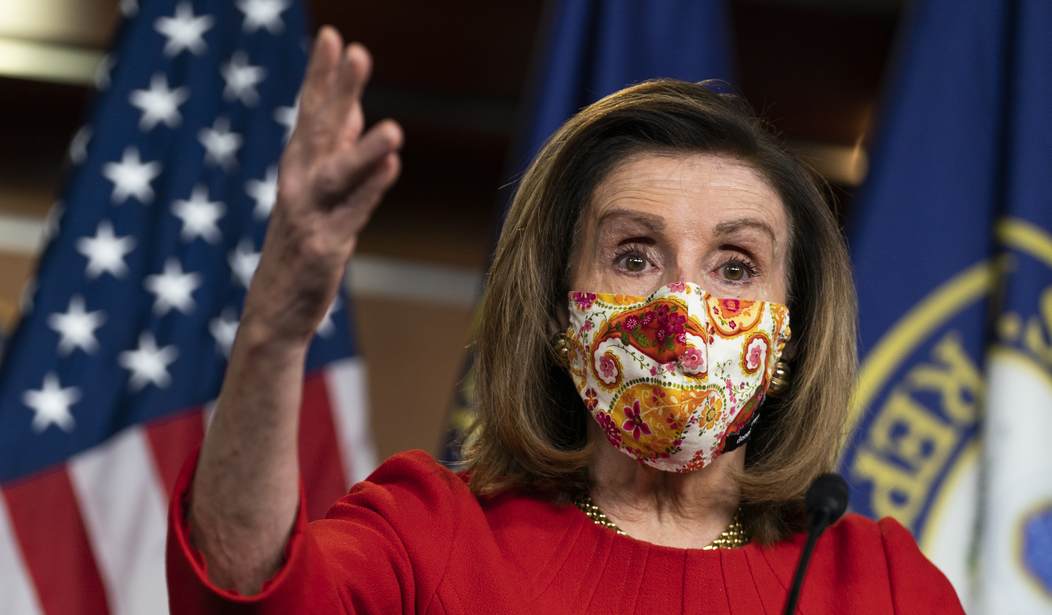The fate of Joe Biden’s agenda may be on the line in the next three weeks as the Democratic House will consider a slew of bills on controversial topics like immigration, policing reform, and labor rights.
While the Senate will be occupied with their own controversies in trying to confirm Biden’s cabinet nominees, House Democrats will try to hold their own caucus together when some of the legislation comes to the floor. There’s a voting-rights bill that the Congressional Black Caucus opposes and some Democrats think the police-reform legislation goes too far.
Speaker Nancy Pelosi has only a five-vote cushion and with a united Republican caucus on most of the issues coming to the floor, it’s an open question whether they can pass many of them.
Democrats are moving legislation at a rapid clip for now, fast-tracking bills that were passed in the last Congress. They’re eager to show their base the type of progress that can come from electing Democrats to take full control of Washington. But taking big swings can mean taking big risks.
And unity tests are looming as many Democrats admit they’re still struggling to navigate a political landscape reshaped by the Jan. 6 insurrection. Their lingering distrust of GOP colleagues who opposed certification of President Joe Biden’s win spilled out onto the House floor after weeks of emotional conversations in private — threatening to hobble any chance of cross-aisle work in the House.
Suddenly finding themselves with a Democratic president and nominal control of the Senate has unsettled some House Democrats who realize controlling the entire government isn’t all it’s cracked up to be.
In only the second month of Democrats’ unified power over government, the limits of control are becoming clear. For many Democrats, passing legislation during the last Congress that was likely to run aground in a GOP Senate was one thing. Now that bills the House passes stand a real chance of becoming law, Democrats are suddenly looking harder at their own decisions.
“I know we’re going to have a lot of political to-and-froing, but I think this is going to be a very productive Congress,” House Majority Leader Steny Hoyer said.
Senate Republicans will have a lot to say about that.
Meanwhile, the fallout from the Jan. 6 riot is broad and deep. There are some intense feelings against Republicans who voted to overturn the election. Rep. Maxine Waters says she won’t consider any bills in her budget committee that were authored by any of those Republicans.
There’s lingering anger within the caucus about what several Democrats privately described as their leadership’s failure to start a “family conversation” until this week about interacting with Republicans in a post-Jan. 6 world. Senior Democrats counter that there’s no way they could institute any kind of caucus-wide policy on the issue and say they have addressed it in numerous conversations before this week.
[Rep. Sean] Casten [D-Ill.] defended himself on a private caucus call mid-week, saying he didn’t want to be ostracized as the “Thomas Massie of the left,” according to several people listening — referring to a Kentucky House Republican who has alienated many in his conference. But Casten is one of several Democrats who have drafted their own kind of “blacklist,” refusing to work with any GOP members who supported Trump’s efforts to overturn the election.
The Capitol riot has increased the distance between the two sides with no chance of healing the breach. Republicans certainly don’t feel any love for their Democratic colleagues — especially since there are several Democrats who want to destroy the Republican Party.
It will all play out on the House floor and in voting booths across the country as the American people will judge members of both parties based on their actions and behavior.










Join the conversation as a VIP Member